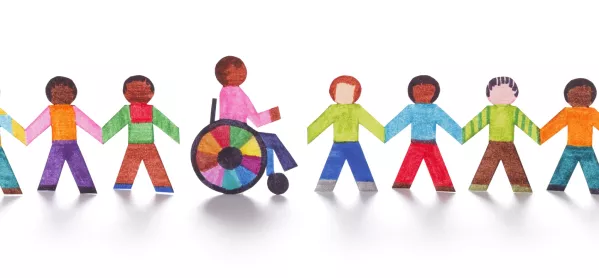The education system is “creaking at the seams” when it comes to inclusion - but money is not the only problem, MSPs have been told.
Angela Morgan, the author of the independent review into additional support for learning (ASL), has said that “the whole concept of inclusion is not fully embraced”.
Speaking at the Scottish Parliament’s Education and Skills Committee, she said some teachers thought they should only be teaching children who could achieve in exams and were “upfront about that”.
Background: Government accused of ‘sneaking out’ ASN review
Opinion: Additional support ‘not visible or equally valued’
News: Children ‘failed’ by drop in specialist teachers
Other teachers, meanwhile, had become cynical because they once believed in inclusion, but “hadn’t seen it being delivered in practice” and had “lost heart”.
Ms Morgan said there was a need to be honest about these “uncomfortable truths” and “confront them” - as well as to “rethink” mainstream schooling, now that 30.9 per cent of pupils were recorded as having an additional support need.
Up until now, there had been an attempt to “tweak” schools and “tweak” children with additional support needs (ASN) so they fitted in, she said at the committee yesterday.
Ms Morgan said: “The whole concept of inclusion is not fully embraced; there is not a belief that mainstreaming or inclusion of all children is something that should be done.
“So I had teachers saying to me, for example, ‘I should only be teaching the children who can achieve through exams’ - and they were quite upfront about that. That was their view.
“I heard from other people who had a belief [in inclusion] but because they hadn’t seen it being delivered in practice they had lost heart, they had become cynical and I think, again, that’s very sad, but it is a reality. These are the uncomfortable truths we have to confront.”
More money was needed but resources also had to be directed so they “enhance inclusion rather than reinforce exclusion”, she said. And whether that happened often came down to the “mindset” of school leadership teams - and whether they believed children with all types of needs should be included in the classroom, she said.
An example was how pupil support assistants (PSAs) were deployed in school - if they were used “to maintain children within the classroom setting as part of the group” or “to contain children out of classroom settings”.
Ms Morgan, whose remit when conducting the review did not include looking at resourcing, said: “The easy thing to say would have been it needs more resources but it’s not just that. It does need more resources - I can’t say how much - but we need to be clear we are using the resources we have in the right way.”
She said resources were a real issue but that should not “disguise the fact that we don’t have a fully signed up community to the concept of inclusion”.





